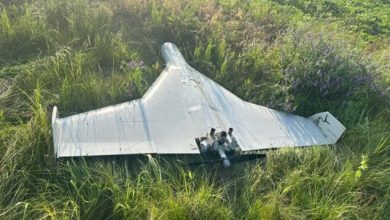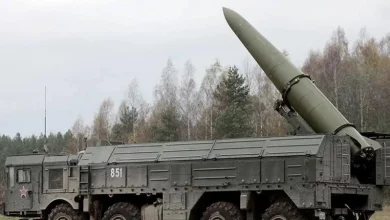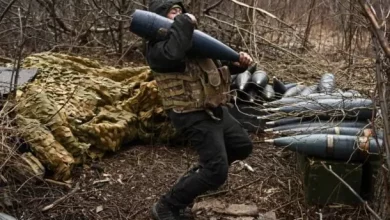Analysis: NATO and the EU need a strategy for Eastern Europe

Recent moves by Denmark, Finland, and Sweden are strengthening European security. But Russia’s aggression against Ukraine must fundamentally change how NATO and the EU approach their Eastern neighbors.
The impact cannot be underestimated. The decision by Finland and Sweden to join NATO changes the political and strategic character of the U.S.-led military alliance.
By abandoning their neutrality, Finland and Sweden are shifting NATO’s profile. The north of Europe is no longer a security vacuum. Russia’s war against Ukraine has made these countries vulnerable and insecure. Once they join, the alliance would defend both in case of attack.
Next door, Denmark, often underestimated as a strategic and military player, voted to end its opt-out from the EU’s Common Security and Defence Policy. Copenhagen will now be able to add much-needed strategic analysis to the bloc that is struggling to move from being a soft-power organization to adopting a hard-power stance.
Both Finland and Sweden’s accession to NATO and Denmark’s move to join EU defense cooperation will boost the security of northern Europe and that of the Baltic states and Poland. From a military point of view, Europe is more united.
Politically, however, there are big divisions inside NATO and the EU over how to deal with Eastern Europe—and Russia—that need to be tackled.
The biggest ones relate to arms control and enlargement.
NATO members are relieved that the alliance has rediscovered a sense of purpose due to Russia’s war in Ukraine. There is now a strong common threat perception in the alliance. It’s almost similar to the Cold War era. NATO is now firmly back in Europe, no longer venturing out of area to Afghanistan or Libya, where its missions came in for much criticism.
Being back in Europe means, however, that NATO must decide what it wants to do with a security that is enhanced by Finland and Sweden but an insecurity that is spreading across Eastern Europe.
During the Cold War, NATO’s raison d’être was the defense of Western Europe. At the same time, despite all the false starts, the United States (from a position of strength) and Russia did discuss conventional and nuclear arms control. The absence of any push to revive arms control creates a dangerous security vacuum for Europe and particularly for its Eastern neighbors.
No one knows how the war in Ukraine is going to end—or if NATO and the EU will remain united in their support for Ukraine.
What should be certain is that a return to arms control will have to take place at some stage. At the moment, there are no signs from Europe’s two nuclear powers, France and Britain, or for that matter the United States, that this is on their radar screens. And for all the rhetoric from Germany that focuses on strengthening multilateral institutions, there is hardly a murmur about how to revive arms control. The silence is short-sighted and dangerous.
As NATO finalizes its new Strategic Concept and the EU works to implement its Strategic Compass, both organizations need to share ideas about how to put arms control back on the agenda, and spell out what kind of negotiations they envisage and with whom. This is about the future security of Europe, including Eastern Europe.
Related to this challenge facing NATO and the EU is enlargement. The decision by Georgia, Moldova, and Ukraine to apply to join the EU ruffled feathers among several existing members. Regardless of how long it would take for these countries to join, there is little appetite inside the bloc for enlargement.
Just consider the ambiguity toward admitting countries from the Western Balkans, which is after all the EU’s backyard. The union’s attitude toward this region has been consistently disingenuous. The foot-dragging has given China the opportunity to heavily invest in big infrastructure projects. The EU’s reputation and credibility has been damaged.
By contrast, NATO has already admitted Albania, Montenegro, and North Macedonia. This increases the strategic influence of the United States in this part of Europe.
While NATO is “ahead” of the EU in the Western Balkans, it is a different matter in Eastern Europe. Neither organization has a strategy about how to integrate these countries into their respective houses.
Since Germany and other member states oppose Georgia, Moldova, and Ukraine joining NATO or the EU, they should then consider what kind of future political, economic, and security relationship they want with their Eastern neighbors.
The EU’s trade accords with Chisinau, Kyiv, and Tbilisi have been extremely beneficial. But Russia’s aggression against Ukraine adds to their insecurity. Both NATO and the EU need to recognize and admit that if they are not going to go along the traditional enlargement route, they should devise ways to give these countries economic, political, and security umbrellas. The war in Ukraine surely demonstrates why these umbrellas are urgently needed.





